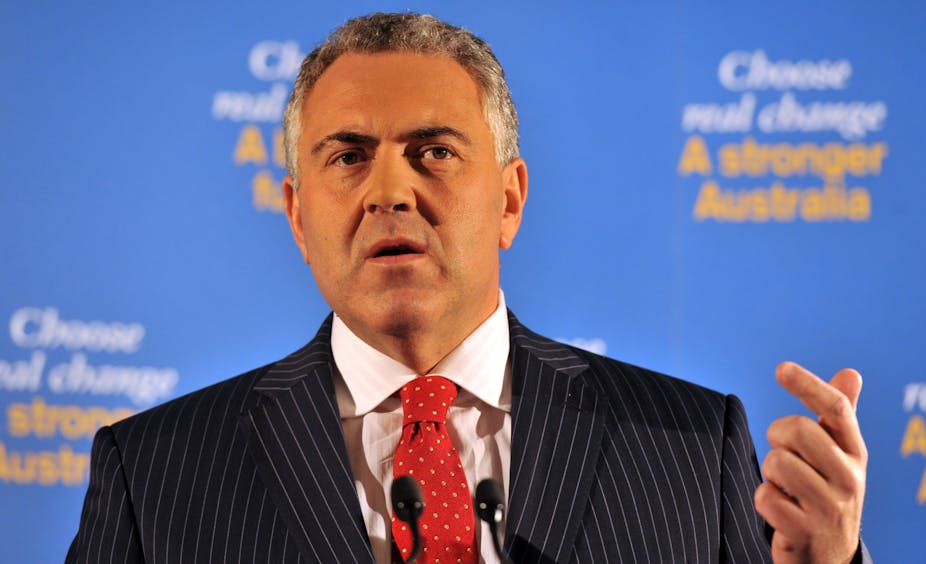The interest rate drop of 25 basis points to 2.5% - a new half century record low – will be a relief to mortgage holders focused on cost of living, an issue biting in this election.
It’s positive news for the government – in contrast to the last time rates were altered in a campaign. A rise in the 2007 campaign was a blow to a government heading for defeat.
But whether, or how much, the fall will actually help Labor is debatable. It may ease some voters’ concerns about their finances, but will it make them feel warmer towards the government?
The Reserve Bank, like last week’s economic statement, pointed to growth being “a bit below trend”, which was expected to continue in the post mining boom period.
Treasurer Chris Bowen wrapped the lower rate around Labor. “The fact is that, under Labor, interest rates are at record lows,” pointing out that a family with a $300,000 mortgage would be paying $500 less a month than when the Coalition was last in office.
The interest rate fall has been slippery ground for the opposition.
In the run up to the Reserve’s decision, its message was that a rate drop would just show what a bad state the economy is in. Shadow treasurer Joe Hockey said on Monday: “The fact of the matter is, we should not be in a position where interest rates are being cut because the economy should be growing faster.”

Hockey often doesn’t anticipate the political effect of his words. Clearly this line could easily be turned into an assertion that the opposition didn’t want rates to fall, and Kevin Rudd was, as he might say himself, in like Flynn. “That is a kick in the stomach to Australian families,” he said.
Before the rates decision was announced, Abbott today was out trying to balance the opposition’s lines. “There is no doubt that a reduction in interest rates is a good thing”, he said, “but you have to ask yourself why are interest rates likely to be cut”.
The old, once very effective Liberal mantra – that interest rates would be always lower under the Coalition than under Labor – is now not only not true, but has become awkward.
When Abbott was asked whether he would have interest rates lower than Labor, he replied: “We won’t chloroform the economy. … What I say is that the economy will always be stronger under a Coalition government”.
John Howard, who pushed the “always lower” line in 2004, said today it was all a matter of “context” – the current low rate was not because economic management had been good.
If the economy did become stronger, interest rates would obviously rise although Hockey, asked to promise that rates would always be lower under the Coalition than under Labor, told his news conference this afternoon that “on average, over the political cycle, that is the truth”.
On another economic front, the Coalition has made the provocative decision that it will not release before the election a time for returning to surplus. It is using the argument that, after Treasury’s revisions between the May budget and last week’s economic statement, it won’t be able to trust the final fiscal figures that will come out in a few days under the Charter of Budget Honesty. These are expected to be in line with those in last week’s economic statement.
Hockey told Guardian Australia that last week’s figures in the economic statement were not credible. “These numbers just look stupid so we won’t be adding up our our policies. It would simply produce a meaningless document if we were to do that”.
Abbott again had to get out the fire hose: “What we will be doing in the campaign is fully funding and fully costing all of our commitments. … The budget bottom line will be better under the Coalition than under the Labor Party.
"You will be able to see, do the arithmetic and you will be able to see that the budget bottom line will be better under the Coalition than under Labor.”
Bowen countered: “How can the opposition claim that they’ll be returning the budget to surplus if they refuse to tell the Australian people what they think the impact of their policies are on these surpluses and deficits over the next few years?”
Hockey said this afternoon that the Coalition would publish the total cost over four years of its promises and the ways it would pay for them. “But we are not going to make the mistake Labor made and make rash forecasts about what a surplus or a deficit will be in the out years because the starting point is unbelievable”, he said, declaring there should be more “realistic assumptions” in the official numbers released in the campaign.
Its decision opens the opposition to much criticism. That Treasury/Finance fiscal figures are coming ten days into the campaign is the result of a Howard government (very good) initiative. Yet the opposition is now cynically spurning that.
But that cynicism will also leave the Coalition with more flexibility if it becomes the government. As Labor knows, and Hockey recognises, precise timetables for returning to surplus can become nightmares.

